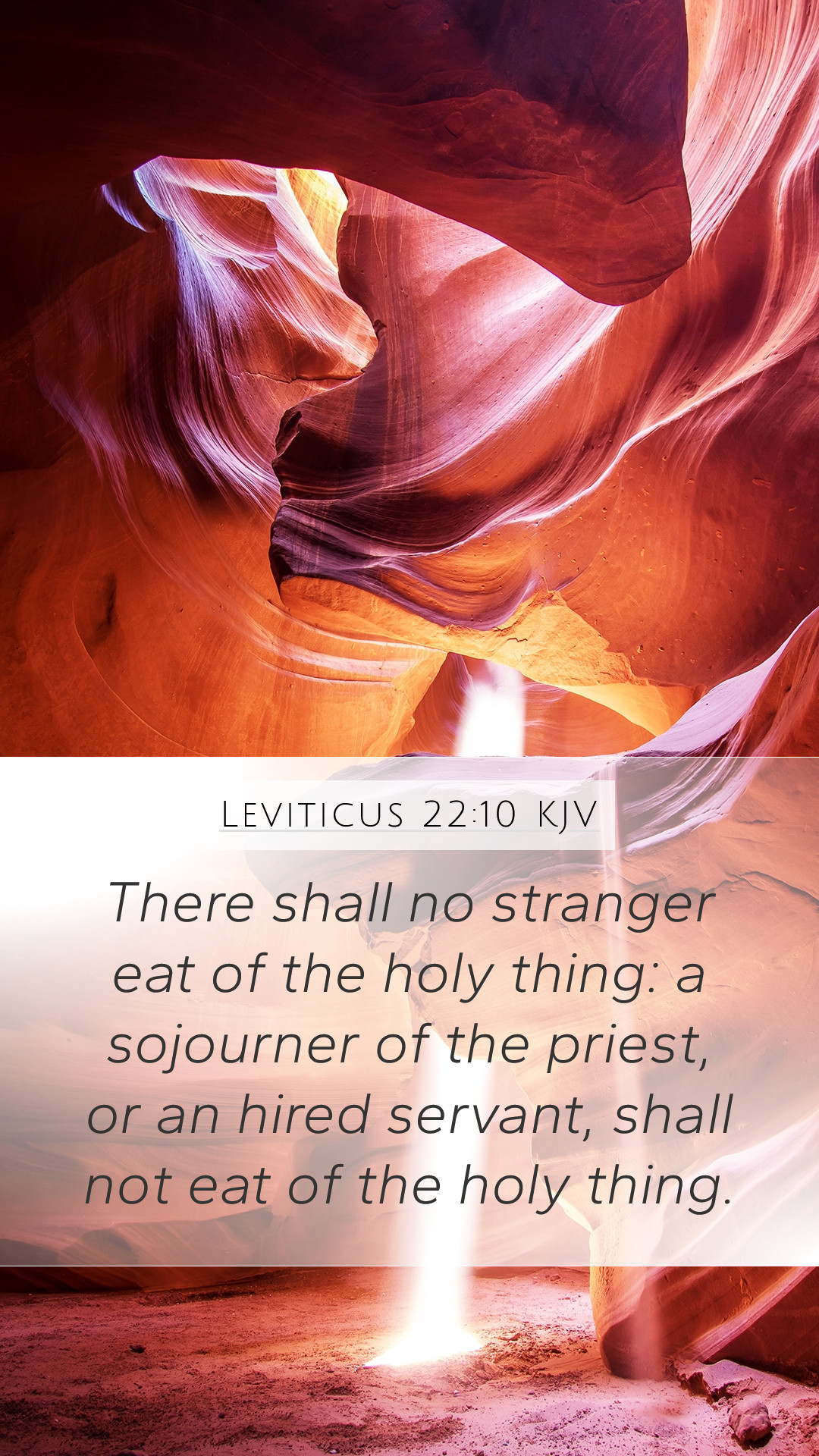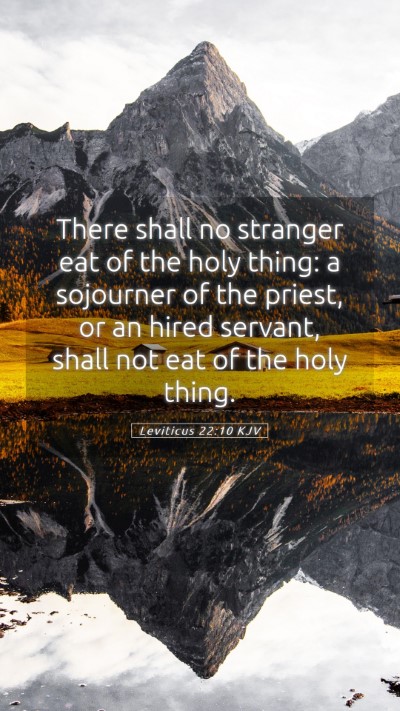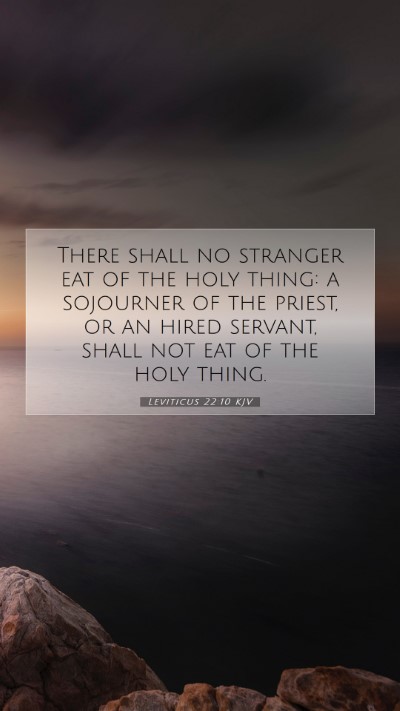Understanding Leviticus 22:10
Leviticus 22:10 states:
"No one outside the priest's family may eat of the holy offering; neither may the guest of a priest eat of the holy offering."
This verse emphasizes the sanctity of the offerings made to God and delineates who may partake in them. The context is rooted in the laws governing the priests' conduct and the holiness associated with their role. Below, we explore the various insights regarding this scripture through public domain commentaries.
Bible Verse Meanings and Interpretations
- Matthew Henry's Commentary:
Henry expresses that the provisions in this verse highlight the exclusivity of the priesthood concerning the holy offerings. Only those who are set apart for spiritual service—the priests and their immediate family—are permitted to partake. This maintains the sacred nature of the offerings and reinforces their holiness. The exclusion of outsiders serves to reinforce the seriousness with which God regards worship and the conduct of His servants.
- Albert Barnes' Commentary:
Barnes elaborates on the instructions regarding who may consume these offerings, underscoring God’s desire for holiness in His worship practices. The verse confirms the distinction between the holy and the profane. It teaches that covenant community membership, which includes the priests and their immediate family, engages directly with sacred mysteries, while outsiders lack this access. This structure is intended to uphold the reverence due to sacred rituals.
- Adam Clarke's Commentary:
Clarke comments on the importance of maintaining purity in the worship setting. This protective barrier restricts any unqualified individuals from consuming the sacred offerings, preserving the gravity of the sacrificial system. Clarke also notes the implications for the broader community—suggesting that adherence to these regulations is pivotal in maintaining the spiritual health of Israel as a covenant people.
Historical Context of Leviticus 22:10
The historical context surrounding Leviticus 22:10 is significant for understanding the verse. This scripture arises during the establishment of laws for the Israelite community following their exodus from Egypt. The priesthood, given authority over sacrificial and ceremonial laws, plays a central role in the spiritual life of Israel. Exclusion from certain practices underscores the seriousness of worship and the need for purity, which transforms these regulations into a way to foster a deeper connection with God.
In-Depth Bible Verse Analysis
When analyzing Leviticus 22:10, it’s essential to recognize the broader themes of holiness and separateness in Scripture. Through this verse, we learn about God’s character, His demand for purity, and the regulations that facilitate the worship experience. It serves to protect the sanctity of sacred offerings, avoid defilement, and ensure that those in relation with God act in a manner befitting their connection.
Application of Leviticus 22:10 to Daily Life
This verse can influence how believers approach their worship lives today. While the specific sacrificial system may not be directly applicable, the principles of reverence, respect, and understanding the sacredness of offerings remain crucial. This can extend to how one approaches serving within the church, recognizing the calling and qualifications of those who lead.
Cross References
- Exodus 29:33 - Discusses the consumption of the offerings by those consecrated as priests.
- Leviticus 10:10-11 - Advises on discernment between the holy and the common, emphasizing holiness in offerings.
- Numbers 18:10 - Further elaborates on who may partake in the sacred offerings made to God.
Further Insights
Engaging with scripture such as Leviticus 22:10 opens up a dialogue about the importance of maintaining the sanctity of one's faith practices. For readers aiming for Bible study insights, consider how these ancient regulations can inform modern faith communities in building a culture that esteems holiness and shared understanding of sacred practices.
Conclusion
In summary, Leviticus 22:10 serves as both a historical and spiritual foundation that underscores the principles of holiness, exclusivity, and respect in worship. Engaging with this verse through biblical exegesis reveals its significance in understanding the character of God and the responsibilities of those in spiritual leadership. Whether as part of a Bible study group or individual study, exploring such scriptures fosters deeper comprehension of biblical truths and their applications in everyday faith.


